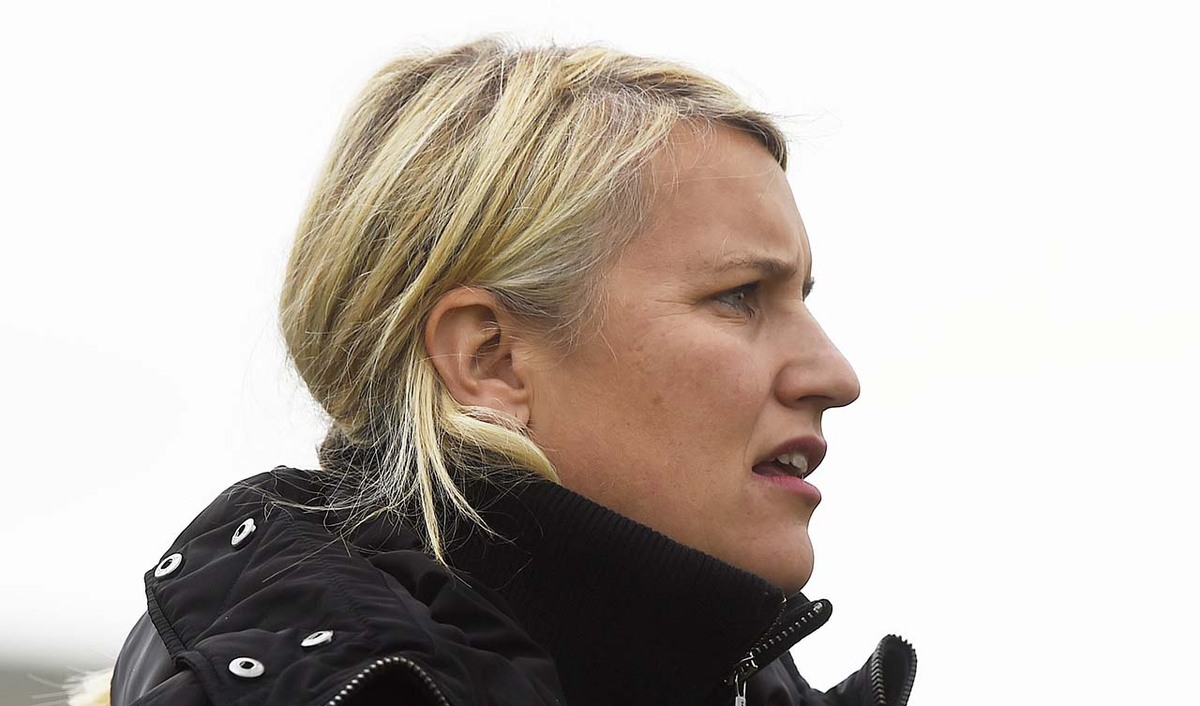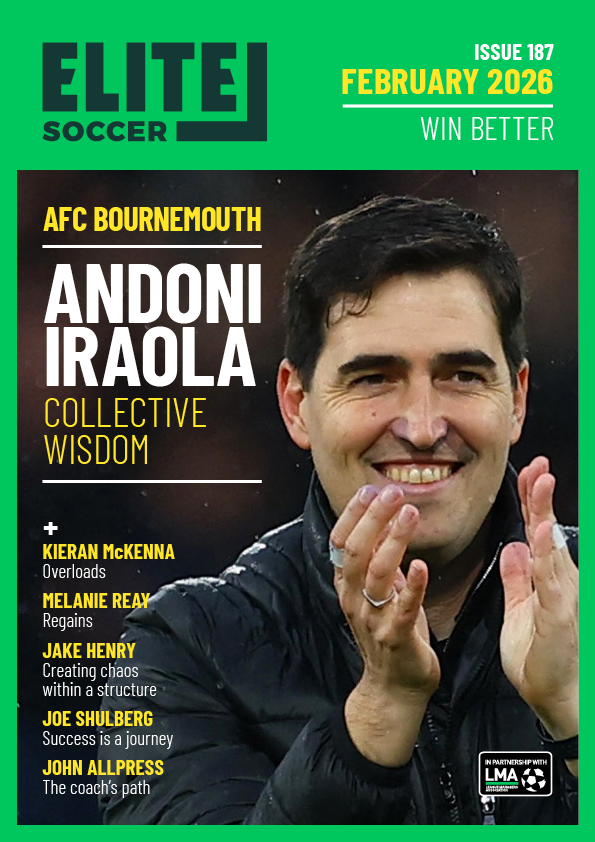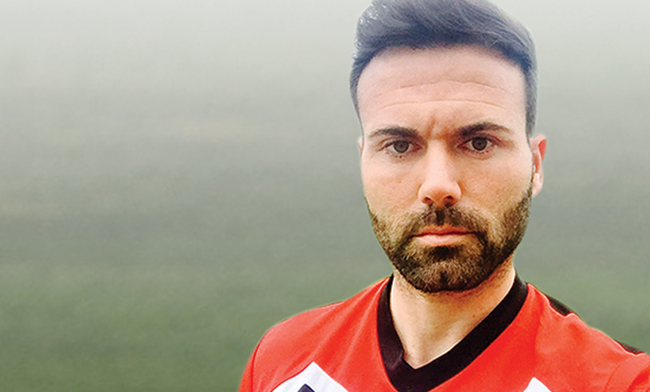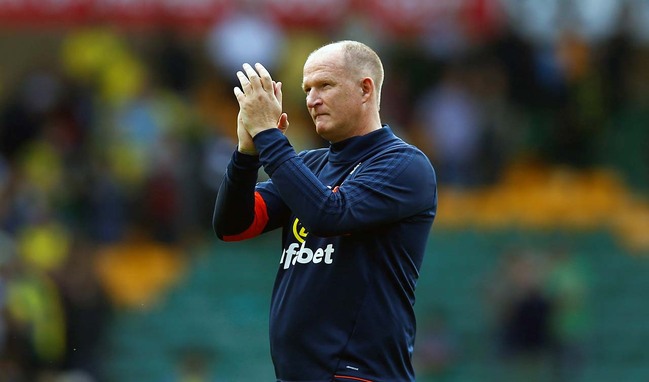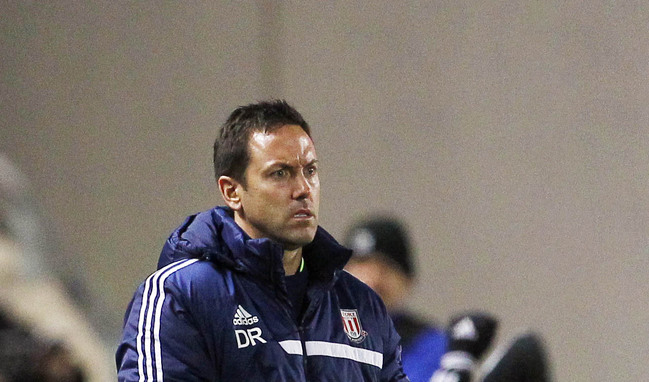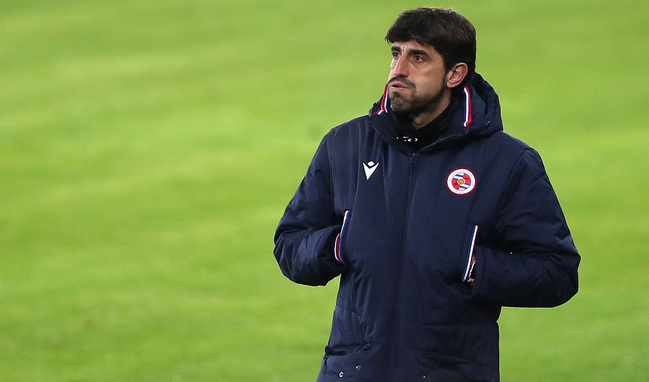NEXT ELITE SOCCER COACHING AWARD COHORT STARTS FEBRUARY 16 - ENROL NOW
You are viewing 1 of your 1 free articles
True blue coaching
In 2001 Emma Hayes gave up a steady job and headed to the USA to work for $100 a week. Fifteen years on from that first coaching job and now manager of WSL side Chelsea Ladies, she explains how the risk paid off…
In 2001 Emma Hayes gave up a steady job and headed to the USA to work for $100 a week. Fifteen years on from that first coaching job and now manager of WSL side Chelsea Ladies, she explains how the risk paid off…
Some of us know exactly what we want to do with our lives before we’ve even hung up our boots. We know what we’re good at, we know what we like. For others, though, particularly those whose skills are transferable, the path ahead may not be so clear.
For Emma Hayes to embark on the career that would see her awarded an MBE for services to football in 2016, she first had to realise that the trajectory she was on wasn’t for her. That epiphany came at Salford University while she was studying for a master’s degree in intelligence and international relations.
“I was sitting in a small units military tactics meeting about the Iraq war, we’d been given a fictional scenario and the guy next to me was talking about how he’d use a certain weapon to ‘wipe everyone out in seconds’,” says Hayes. “I had to ask myself, what am I studying this for? It dawned on me that, however much I wanted to work for MI5 or MI6 and be the next Jane Bond,
I genuinely didn’t want to kill anyone. I knew then that I’d better start thinking about an alternative profession.”
After leaving Salford and a career in public service behind, Hayes took up the role of sports development officer for her local council, part of which involved dealing with conflicts between the Pakistani and Bangladeshi communities. There she was involved in setting up a youth football league, which today boasts some 3,000-plus members.
“I enjoyed the conflict resolution part of the job, but I was keen to work with athletes at a higher level and when a colleague offered me the chance to coach for a semi-professional side in the US I jumped at it.”
Rewind a few years and Hayes’s route into football, albeit via Ministry of Defence training, starts to make more sense. She enjoyed the game as a player until injury meant that was no longer possible and had taken her B-Licence before attending Liverpool Hope University. While studying she played socially for the university team and when the side needed a coach her analytical mind and evident leadership qualities made her the obvious choice. There she enjoyed her first taste of coaching but without any aspirations of turning it into her career.
FIRST STEPS
And yet, in 2001, she packed a rucksack and £1,000 and left for Long Island to coach an U10 boys team at a large soccer club. It was the start of a journey that would take her all over the US, home and back again and see her coach at every level and in every genre of the game. But it started small – $100 a week small – and with a move that most of us would consider scary and even foolhardy.
“I went from what I thought would be a good job at the Ministry of Defence to leaving on a whim to go to another country, but it was exciting,” says Hayes. “I tend to take situations like that as challenges, so it wasn’t a difficult decision for me and the idea of getting on a plane and going to live and work in NYC sounded wonderful. Of course, the reality was somewhat different – hours and hours of driving and working seven days a week on very low pay.”
What she gained in return though was a deep understanding of the complex soccer landscape in the US at a very exciting time for women’s football.
“I have never missed a coaching step,” she says. “I’ve coached every age, boys, girls, from the lowest level up through college teams, state teams, regional teams, semi-professional teams and eventually professional. It was the best grounding I could have had, because it prepared me for anything.”
After several years at Long Island Lady Riders, Hayes moved to Iona College for another three before returning to the UK in 2006 to work at Arsenal Ladies as assistant manager to Vic Akers, who she holds in the greatest respect.
“Vic was the first person in this country to set the professional standard for women’s football and he always kept the standards high at Arsenal,” she says. In fact, the standards she helped Akers uphold at Arsenal Ladies over her two-year tenure lifted so high that the side ran away from the competition, winning a historic quadruple in 2006 that included the Women’s Championship.
“It was a wonderful experience and an achievement like that is very hard to beat, but two years at the club was enough for me because the competition just wasn’t strong enough,” she says.
While Arsenal had raised the bar,
many other teams in the WSL lacked the same professionalism and relied on players who were still competing as amateurs. Winning was too easy for the team and more importantly, for Hayes.
GO WEST
The US and its more sophisticated WPS, the precursor to today’s National Women’s Soccer League, beckoned in 2009 when Hayes was offered the job of managing Chicago Red Stars. It was the pinnacle of her career to date, but it lasted only one season and five games into the next before Hayes was let go. Yet rather than denting her confidence or leaving her embittered it was, she says, the best thing that could have happened to her.
“When something goes wrong I always have five mirrors on myself, so I accepted the criticisms that came my way and took time to evaluate how to improve,” she says. “I always look at myself first before I look outside.
“It was hard and I was hurt but I knew I would come back tougher and stronger, and more importantly I was going to come back better, because I could see there were reasons I hadn’t been as successful as I’d wanted to be. To do something once is a mistake but to do it twice is a habit.
“I learned a lot about myself in terms of how to be even clearer in my communications as a coach and the impact that a lack of clarity can have on the team. And I learned valuable lessons about how to put together a team with the right blend of skills, experience and, most importantly, characters.”
Having the right personalities, she says, is the number one prerequisite. “Talent is a given, but when there’s a crisis you need to know if a player has the ability to think clearly under pressure and deliver performance. Can they set aside their personal problems and home life to be a professional and do their job and how will they cope with changes, with having to play in a new shape or position or sitting on the bench?”
These lessons became invaluable in her next couple of roles, in which she was tasked with building teams from scratch, and she relished the opportunity to put into practice all the things she wished she’d done the first time around.
“I wasn’t the head coach, but it was a great exercise in really considering the make up of a high-performing team, and I knew from there-on in that I understood how to get the balance right,” she says.
TURNING BLUE
When Hayes arrived at Chelsea Ladies in 2012, her first management role since Chicago, she found a club languishing at the bottom of the table and in need of “rebuilding from the inside out”, something she was now something of a specialist at.
“I went back to basics,” she says, “so immediacy in terms of winning games was not our priority; building a culture was.
I knew that in the short term we were going to concede results, so in that sense we’d have to go backwards before we could go forwards, but setting the culture was my priority. That meant recruiting the right people and my immediate focus was the backroom, building the staff, the infrastructure, getting best practice in place, and ensuring we had the right team around the team.”
The sweeping changes that Hayes implemented at Chelsea paid dividends in the 2015-16 season when the club walked away with the double, but she knows that you can’t sit around and watch the champagne stains dry.
“I think the first trophies you win are often the easiest ones,” she says. “Sustaining it is the hardest part and you have to remind your team members of that every single day; repeated success is what it’s about, and to be even better at what you do you have to put even more into it.”
Recruitment is key here, she adds, because the side must evolve. “We know that what got us here won’t get us there. The same goes for our playing style, so we’re constantly looking at what our opponents are improving on. To become repeated champions, yes, you need high standards, but you also have to find new ways to win and that’s not always easy, especially for the players. Humans are creatures of habit and we tend to want to stick to what we know and what we’re most comfortable with. To push an environment forward the whole time involves massive risk, but that’s how I work. If I didn’t I wouldn’t be able to keep myself and the team motivated.”
TOTAL COMMITMENT
Hayes has demonstrated throughout her journey to elite level football that she is driven by the challenge of the new and the difficult, and by the desire to make a genuine, long-term impact. “With every year that I coach it gets harder to stay at the top, but I enjoy looking for all the marginal gains that will keep me there,” she says.
“It’s a thankless task half the time, but I believe that we have a culture at Chelsea Ladies that can leave a massive legacy,” she says. “This is the first time in my career that I really feel settled and I don’t see myself going anywhere else. I treat what I do every day as if it’s my own – my own family, my own club. I care about every decision I make and every pound I spend here and I treat it with the care and responsibility that I do my own house.
“I’m motivated by the enjoyment and pride I get from working here, but also that of others. I want people to come here every day because they enjoy training and representing their club and winning, and I want to make this a club that everyone wants to come and play for.
“What’s more, the fact that I’m developing people to become great leaders, decision makers and practitioners motivates me as much as winning any game.”
Editor's Picks
Attacking transitions
Deep runs in the final third
Using the goalkeeper in build-up play
Intensive boxes drill with goals
Penetrating the final third
Creating and finishing
My philosophy
Pressing initiation
Compact team movement
Coaches' Testimonials

Alan Pardew

Arsène Wenger

Brendan Rodgers

Carlos Carvalhal

José Mourinho

Jürgen Klopp

Pep Guardiola

Roy Hodgson

Sir Alex Ferguson

Steven Gerrard
Coaches' Testimonials

Gerald Kearney, Downtown Las Vegas Soccer Club

Paul Butler, Florida, USA

Rick Shields, Springboro, USA

Tony Green, Pierrefonds Titans, Quebec, Canada
Join the world's leading coaches and managers and discover for yourself one of the best kept secrets in coaching. No other training tool on the planet is written or read by the calibre of names you’ll find in Elite Soccer.
In a recent survey 92% of subscribers said Elite Soccer makes them more confident, 89% said it makes them a more effective coach and 91% said it makes them more inspired.
Get Monthly Inspiration
All the latest techniques and approaches
Since 2010 Elite Soccer has given subscribers exclusive insight into the training ground practices of the world’s best coaches. Published in partnership with the League Managers Association we have unparalleled access to the leading lights in the English leagues, as well as a host of international managers.
Elite Soccer exclusively features sessions written by the coaches themselves. There are no observed sessions and no sessions “in the style of”, just first-hand advice delivered direct to you from the coach.
